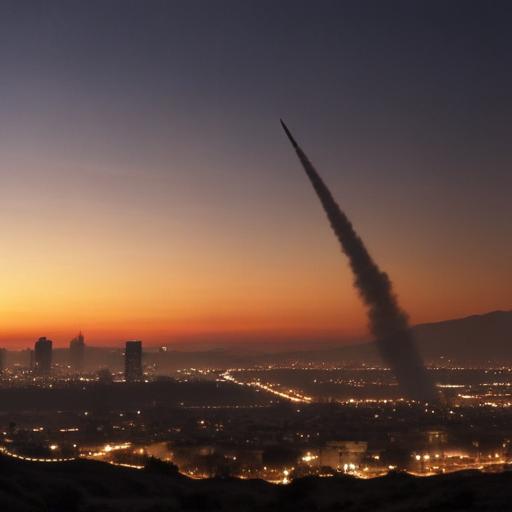Iran has escalated its military aggression by launching a new wave of missile strikes on Israel early on Monday, June 16, 2025. These attacks triggered air raid sirens throughout the country, leading to reports of projectiles impacting areas in northern and central Israel, resulting in injuries to at least 91 individuals. Powerful explosions, indicative of Israel’s defense systems intercepting the Iranian missiles, reverberated through Tel Aviv just before dawn, marking a continued period of warfare that has now persisted for four days.
On the operational front, Israel’s military responded by targeting command centers in Tehran associated with Iran’s Quds Force, which is the foreign operations division of the Islamic Revolutionary Guard Corps. Israeli Defense Minister Israel Katz issued a stern warning that civilians in Tehran would “pay the price” for the Iranian attacks against Israeli civilians, which have already claimed several lives.
In a diplomatic context, leaders from the Group of Seven, including U.S. President Donald Trump, are preparing to hold discussions in the Canadian Rockies focusing on the escalating conflict between Iran and Israel. Canada is in discussions with other nations about potentially issuing a unified statement that could advocate for de-escalation or affirm Israel’s right to self-defense amid tensions surrounding Iran’s nuclear ambitions.
As a precautionary response to the intensifying missile attacks, the Indian Embassy in Tehran, working alongside Iranian authorities, has begun relocating Indian students to safer locations. Sources indicate that the relocation process involves buses moving students from several medical universities, including Tehran University of Medical Sciences and Islamic Azad University Tehran Medical Sciences.
This situation underscores a critical juncture in international relations, where military actions and diplomatic negotiations are closely intertwined. The efforts to ensure the safety of foreign nationals, like the Indian students, reflect a broader humanitarian response amid ongoing conflict. While the regional tensions remain high, the potential for diplomatic dialogue among major global powers offers a glimmer of hope for de-escalation in the future.
